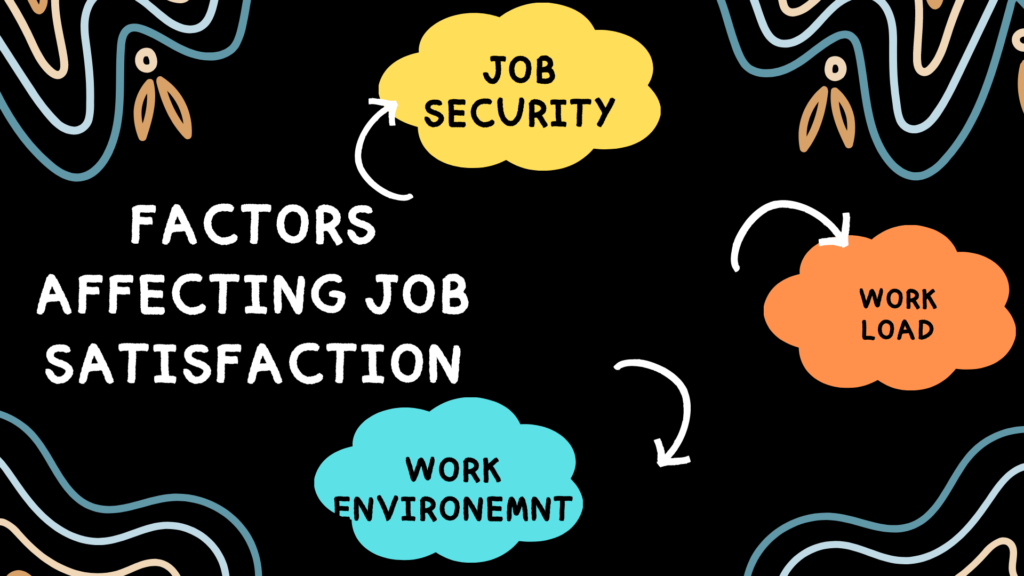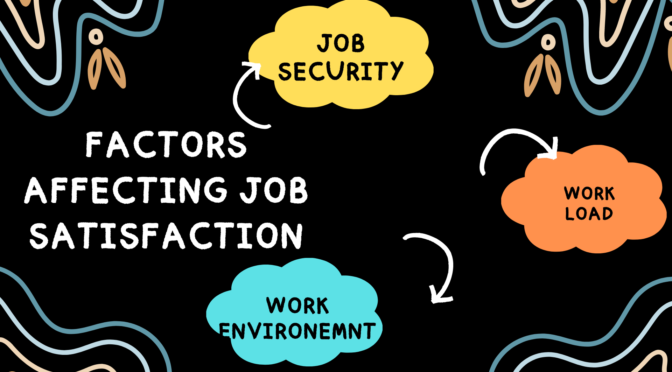Job satisfaction is a subjective measure of an individual’s contentment and fulfillment in their work environment. It is influenced by various factors that can vary from person to person.
Here are some key factors that commonly affect job satisfaction:
- Work-life balance: The balance between work responsibilities and personal life is crucial for overall job satisfaction. Employees who have the flexibility to manage their work and personal commitments are more likely to experience higher job satisfaction.
- Compensation and benefits: Adequate and fair compensation, including salary, bonuses, benefits, and rewards, plays a significant role in job satisfaction. Feeling adequately rewarded for one’s efforts and having access to benefits that meet their needs can positively impact job satisfaction.
- Career growth and development: Opportunities for career advancement, professional growth, and skill development are essential for job satisfaction. Employees who feel they have a clear path for growth and are provided with learning and development opportunities are more likely to be satisfied with their jobs.
- Job security: Job security refers to the stability and confidence employees have in their employment. Feeling secure in their position and having trust in the organization’s stability can contribute to higher job satisfaction.
- Work environment and culture: A positive work environment and a supportive organizational culture are vital for job satisfaction. Factors such as respectful and inclusive relationships, effective communication, teamwork, and a healthy work atmosphere significantly impact job satisfaction.
- Job autonomy and decision-making authority: Having autonomy and the ability to make decisions related to one’s job can enhance job satisfaction. Employees who have control over their work processes and can contribute to decision-making tend to experience higher levels of job satisfaction.
- Recognition and appreciation: Feeling valued and appreciated for one’s contributions and achievements is crucial for job satisfaction. Regular recognition, feedback, and acknowledgment from supervisors and colleagues can positively impact job satisfaction.
- Workload and job demands: An excessive workload, unrealistic job demands, and high levels of stress can negatively affect job satisfaction. Striking a balance between challenging tasks and manageable workloads is important to prevent burnout and promote job satisfaction.
- Relationship with supervisors and colleagues: The quality of relationships with supervisors and colleagues greatly influences job satisfaction. Positive and supportive relationships, effective communication, and a sense of camaraderie contribute to a more satisfying work environment.
- Organizational policies and procedures: Organizational policies, procedures, and fairness in decision-making processes also impact job satisfaction. Clear and transparent policies, fair treatment, and consistency in enforcing rules and regulations contribute to job satisfaction.
It’s important to note that these factors can interact with one another, and their relative importance may vary from person to person. Additionally, individual values, personality traits, and personal circumstances can also influence job satisfaction. Organizations should strive to understand and address these factors to create a positive work environment that promotes job satisfaction among their employees.
Also Read : Job Analysis


